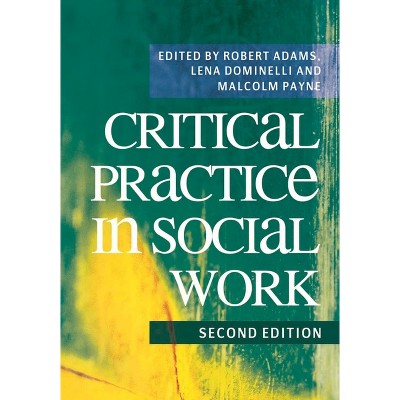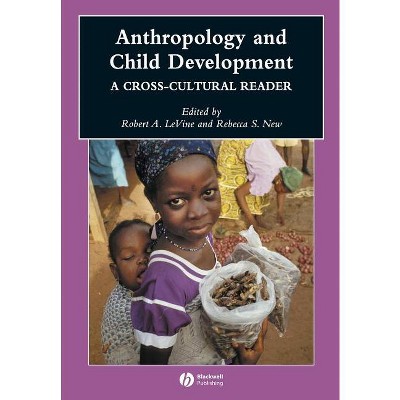Sponsored

Deadhead Social Science - by Rebecca G Adams & Robert Sardiello (Paperback)
In Stock
Sponsored
About this item
Highlights
- Deadhead Social Science is a collection of papers examining various aspects of the complex subculture surrounding the rock band, the Grateful Dead.
- About the Author: Rebecca G. Adams, PhD, Professor of Sociology and gerontologist in the School of Health and Social Sciences at University North Carolina Greensboro, has published 5 books and more than 70 scholarly articles and chapters, including more than 15 on Deadheads.
- 304 Pages
- Social Science, Popular Culture
Description
About the Book
Deadhead Social Science is a collection of papers examining various aspects of the complex subculture surrounding the rock band, the Grateful Dead.Book Synopsis
Deadhead Social Science is a collection of papers examining various aspects of the complex subculture surrounding the rock band, the Grateful Dead. Deadheads, as Grateful Dead fans are called, followed the band from venue to venue until the band announced their dissolution in December of 1995 and have continued to follow bands including various surviving members of the Grateful Dead since then. Deadhead Social Science addresses the questions: What is a Deadhead? How does a Deadhead identity evolve? Why would a person choose an identity that would be viewed negatively by a larger society? Why are Deadheads viewed negatively by the larger society? Is the Deadhead community a popular religion? How did a rock band develop a religious following? The book also examines the music, the role of vendors, and the reaction by "host" communities to the Grateful Dead and its following. One key theme in Deadhead Social Science is the interconnections among teaching, research, and personal interests written from a variety of social science disciplinary traditions.
Review Quotes
the book is a very well written and edited example of the value of encouraging students to pursue their own interests in their academic endeavors. There are likely areas of study-such as Deadhead subculture-that almost require the work of students, less constrained by academic career concerns than their professors, to get the ball rolling. The Grateful Dead were so loved by their fans in large part because the fans were an integral part of the ongoing musical and cultural exploration, and Adams and Sardiello demonstrate the fruits of applying the same collaborative spirit in an academic context.
Research can be fun, fun can be research. Teachers can be students, students can be teachers. Adams and Sardiello prove that beyond doubting in this well-researched and interesting book.
This book is a must read for those with a passion for teaching, for those who are truly engaged in their research and, perhaps most importantly, for those who can conceive of research and teaching as one in the same enterprise.
Well-edited and clearly written...it should appeal to lay or academic audiences interested in subcultures, identity and those who would like to meld their teaching and research interests into that of teacher/scholar. As a whole, the books shows us how a subculture can lead to interest among students, how they can see the world through various lenses, and the richness that can result when students and teachers collaborate. It seems that rarely do researchers have a chance to match their research and leisure activities. In this instance, they have done both and produced scholarly results.
About the Author
Rebecca G. Adams, PhD, Professor of Sociology and gerontologist in the School of Health and Social Sciences at University North Carolina Greensboro, has published 5 books and more than 70 scholarly articles and chapters, including more than 15 on Deadheads. She has taught about Deadheads on tour (1989), on campus, (2000s), and online (2019); presented at the SWPACA Grateful Dead Caucus, at other professional meetings, and to student audiences; written popular press articles about Deadheads, published a fictional piece situated on Dead tour, conducted audience research for Grateful Dead Productions, and narrated Deadheads an American Subculture (1990). She attended her first Dead show in 1970.
Robert Sardiello, MA, is adjunct professor of sociology at Nassau Community College and has published several scholarly pieces concerning Deadheads. He attended his first Dead show in 1977.Shipping details
Return details
Trending Non-Fiction











